Search
Did you mean: Agora?
Remove Ads
Advertisement
Summary 
Loading AI-generated summary based on World History Encyclopedia articles ...
Search Results
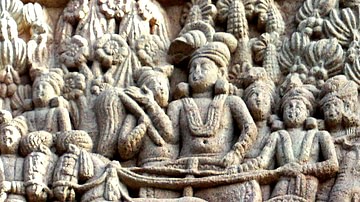
Definition
Ashoka the Great
Ashoka the Great (r. 268-232 BCE) was the third king of the Mauryan Empire (322-185 BCE) best known for his renunciation of war, development of the concept of dhamma (pious social conduct), and promotion of Buddhism as well as his effective...
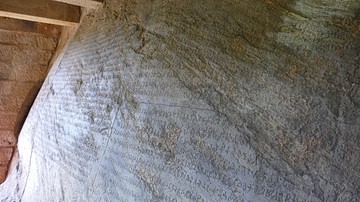
Definition
The Edicts of Ashoka the Great
The Edicts of Ashoka are 33 inscriptions engraved on pillars, large stones, and cave walls by Ashoka the Great (r. 268-232 BCE), the third king of the Mauryan Empire (322-185 BCE) of India. One set, the so-called Major Rock Edicts, are consistent...

Image
Ashoka
Ashoka riding a chariot in a relief from the Sanchi Stupa, Madhya Pradesh, India. Emperor Ashoka the Great (sometimes spelt Aśoka) lived from 304 to 232 BCE and was the third ruler of the Indian Mauryan Empire.
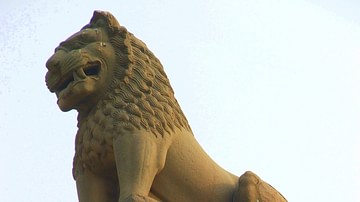
Image
Ashoka's pillar
Ashoka's pillar erected in the district of Vaishali, located in the Bihar state, India. This is one of the nineteen surviving columns erected or at least inscribed with edicts by the Emperor Ashoka during his reign in the 3rd century BCE...
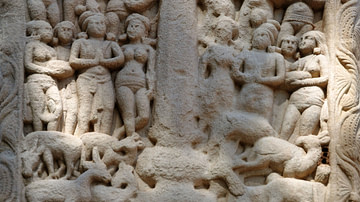
Image
Ashoka Visiting the Deer Park, Sanchi Stupa
Ashoka with his two queens visiting the deer park, Sanchi Stupa 1 Southern Gateway.
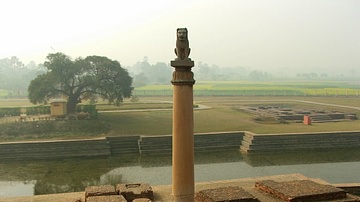
Image
Ashoka Pillar
Ashoka pillar at Vaishali, Bihar, India, 3rd century BCE.
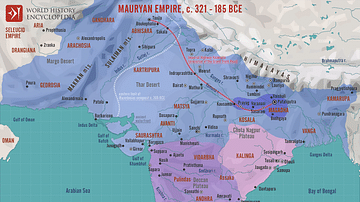
Definition
Mauryan Empire
The Mauryan Empire (322 BCE - 185 BCE) supplanted the earlier Magadha Kingdom to assume power over large tracts of eastern and northern India. At its height, the empire stretched over parts of modern Iran and almost the entire Indian subcontinent...
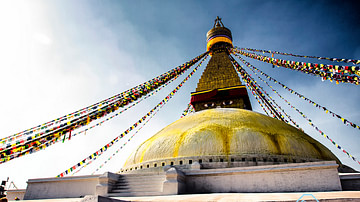
Definition
Stupa
A stupa (literally “heap” or “pile”) is a reliquary, a shrine containing the remains of a holy or sainted person and/or artifacts (relics) associated with them, originating in India prior to the 5th century BCE as tombs of holy men and evolving...
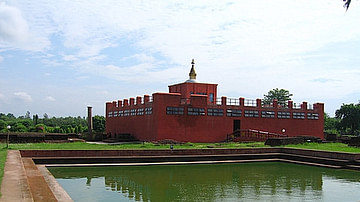
Definition
Lumbini
Lumbini is a village, archaeological site, and place of pilgrimage honored as the birthplace of Siddhartha Gautama (the Buddha, l. c. 563-483 BCE) located in modern-day Rupandehi District of Nepal, Province 5, near the Indian border. It was...
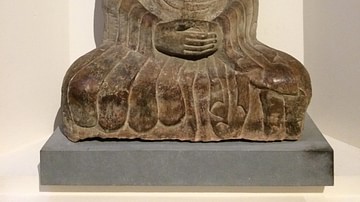
Article
The Dates of the Buddha
The dates of the Buddha, Siddhartha Gautama, have been a concern of, primarily, Western scholars for well over 100 years now owing to the particularly Western need for precise dating of historical persons and events. The problem with precise...